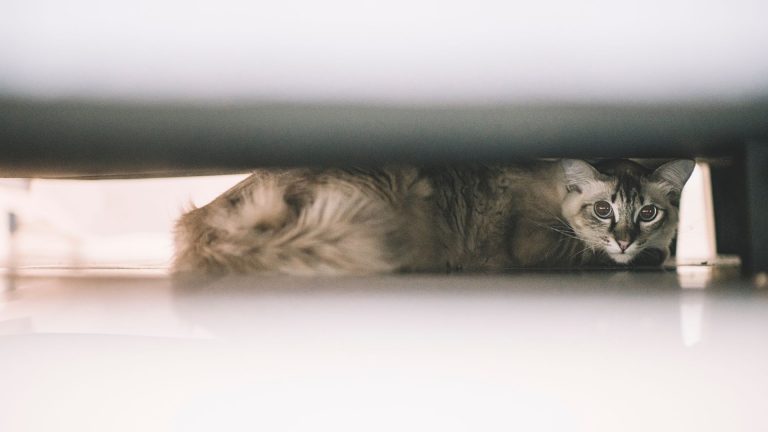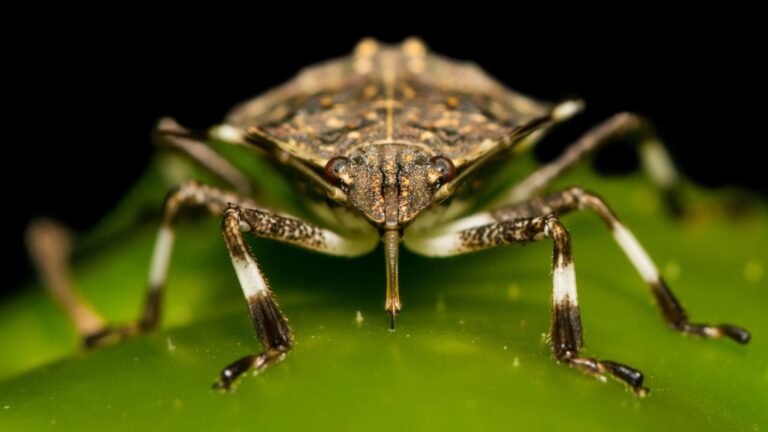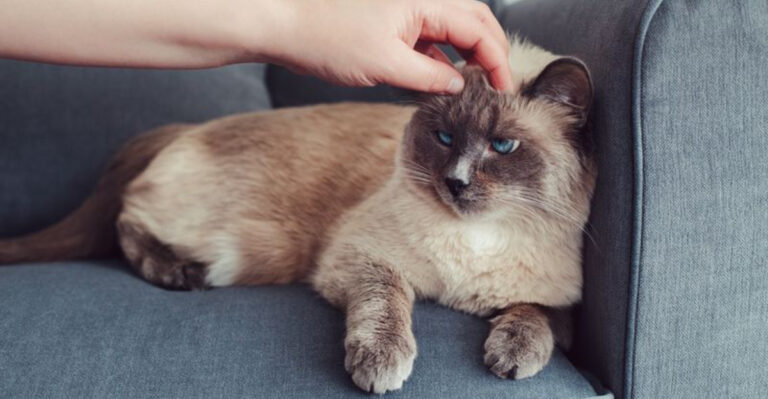What Smells Do Cats Hate? Here’s What You Need To Know
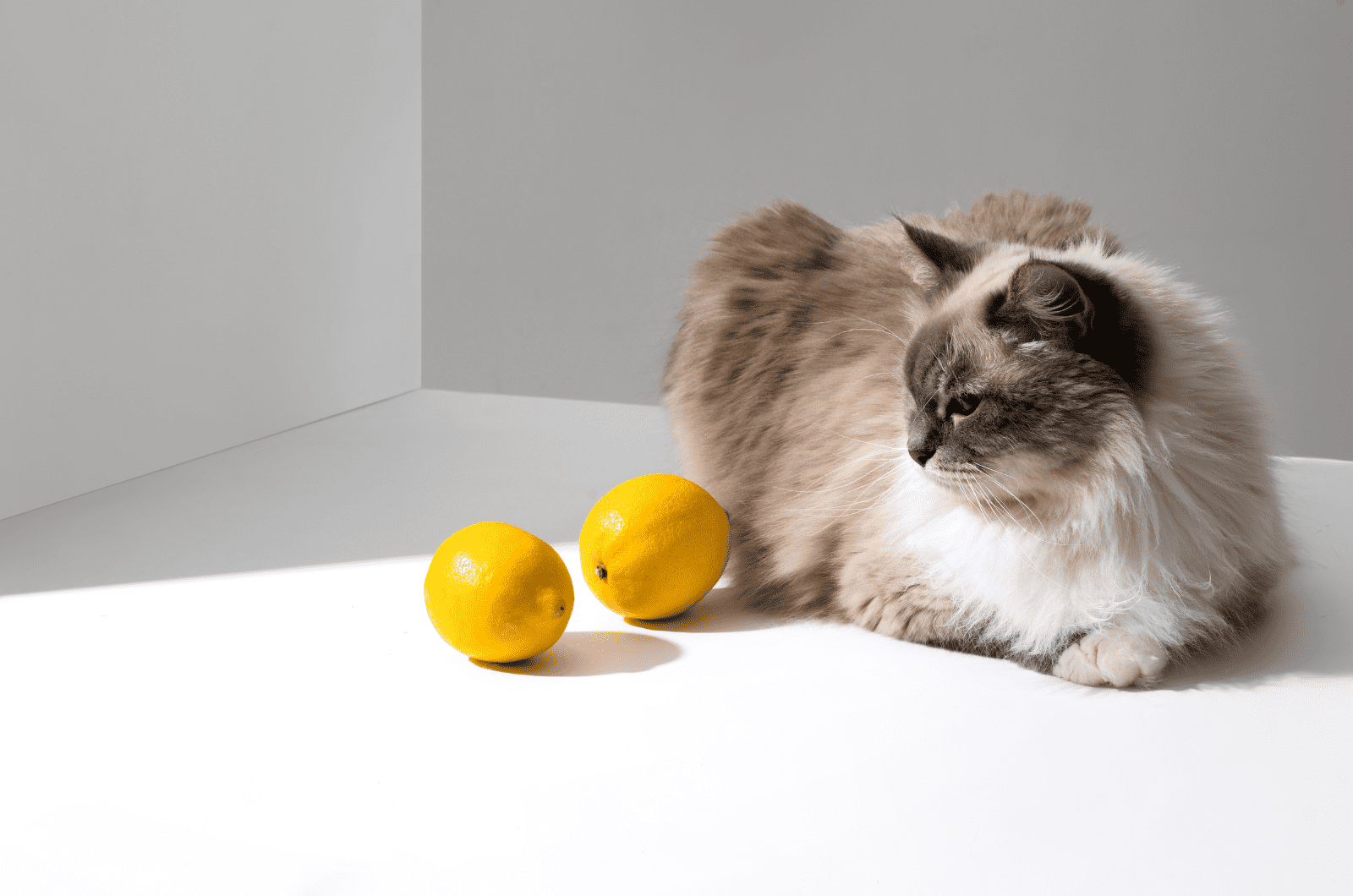
Almost every cat owner knows that cats can be picky at times. For example, they won’t like every cat food that you give them, or they don’t want to eat the same food all the time. Moreover, they may not like certain objects, and push them away for no obvious reason.
Cats can sometimes be real troublemakers, acting like they’re the one in charge and getting grumpy when things aren’t exactly to their liking!
However, there is something that you can safely use against cats to discourage and prevent unwanted behavior, and it involves their sensitive sense of smell.
Most cats are very sensitive to different odors. There are smells that are pleasant to cats, and there are smells that cats hate.
Let’s investigate how to recognize that a cat doesn’t like certain smells, what smells do cats hate, and how to use those smells to prevent unwanted behavior in cats.
If you want to learn more about how useful these smells can be for you and your environment, then read on and find out!
How To Identify What Smells Do Cats Hate?
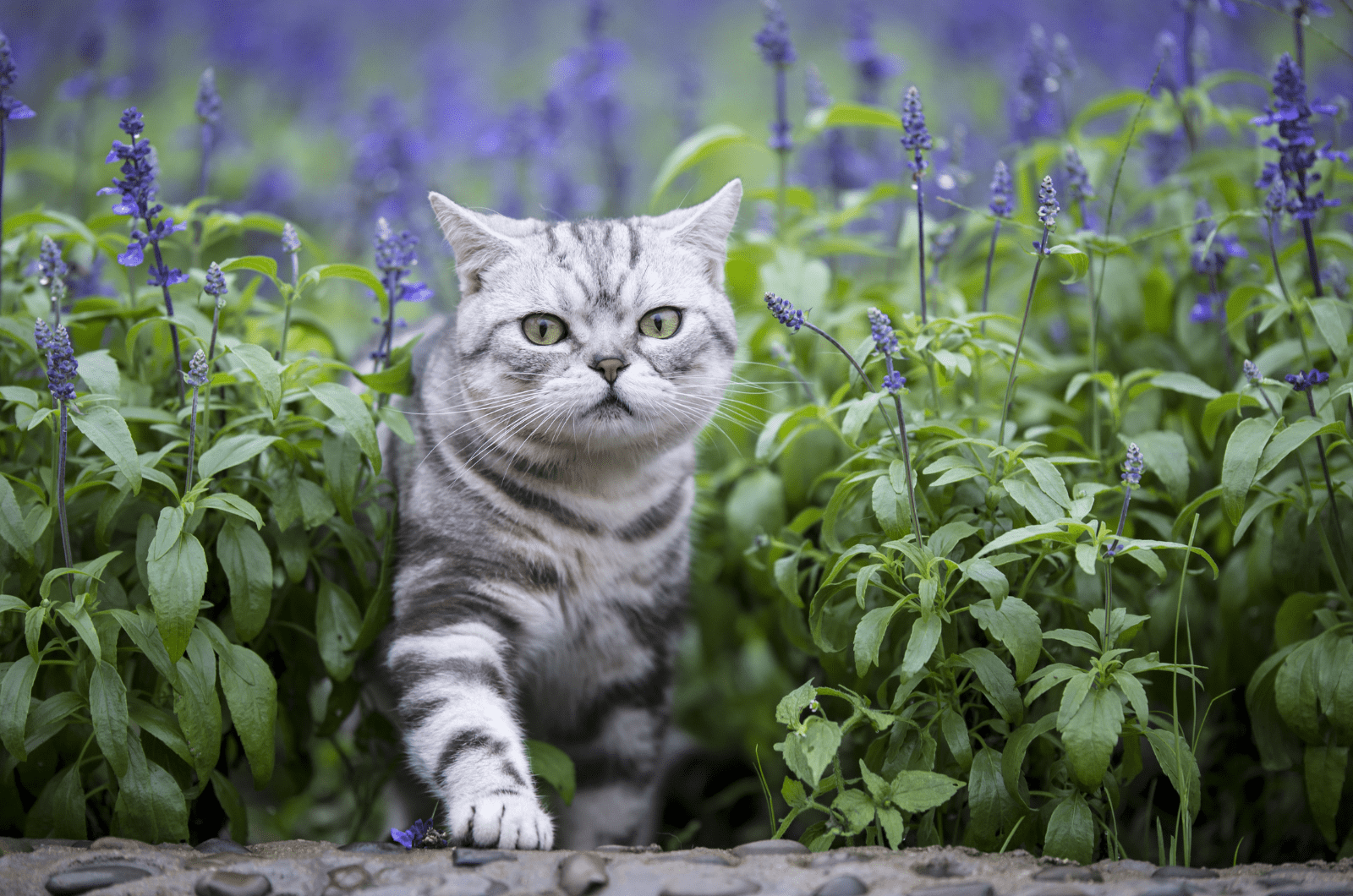
If you want to know what smells do cats hate and you like the idea of using these smells to help control your cat’s behavior when necessary, then you are in the right place.
When cat’s don’t like certain smells, they avoid that particular spot, which is why some of these smells are used to stop unwanted behavior like cats scratching the walls, destroying furnishings, or urinating on the furniture.
However, if you decide to use cat deterrent scents in order to prevent bad behavior, you should always be careful when using them.
For example, if you want your cat to stop peeing or pooping on the floor randomly, then you should clean the area thoroughly and get rid of any trace of the smell to avoid a repeat of that behavior.
Additionally, you can apply citrus scents or another deterent to keep the cat away from the spot. We will discuss this technique later on in the article, but first, let’s learn more about your cat’s sense of smell.
A Cat’s Sense Of Smell
It is important for cat owners to understand the cat’s sense of smell. Every cat has scent receptors which enable them to sense danger, find food, locate their mates, and do lots of other important things.
In fact, these receptors help them survive; cats’ noses have evolved over time to help keep them safe.
Cats have sensitive noses that give them a sense of smell that is 15 times stronger than that of humans.
Unpleasant scents may remind cats of certain dangers they have experienced, for example some scents may be connected to a traumatic event, so now the cat avoids these scents in order to avoid that trauma happening all over again.
Cats may dislike the smell of other cat’s urine, especially if it is on their territory, because they consider it a threat.
Most of the smells that cats hate are associated with danger or trauma in some way.
It’s time to find out what kind of smells cats hate, and some of them may surprise you!
14 Smells That Cats Hate
Citrus Fruits

We have to begin with citrus fruits because they are almost universally hated by all felines. Cats hate citrus fruit smells because citrus fruits typically contain oils that are toxic for cats.
If a cat ingests citrus fruits, this may cause them serious health problems such as vomiting, diarrhea, skin problems, and depression. For this reason, it’s not a good idea to use citrus fruit smells to control your cat’s behavior.
Let’s find out more about cats and the various types of citrus fruit.
Lemon
One of the most common citrus fruits is the lemon, and cats really detest the smell of it! It’s not a good idea to spray lemon juice (even if diluted in water) or lemon essential oil around your feline friend as it’s toxic to them, according to the ASPCA.
So, if you have to use lemon in your home, make sure that you don’t spray it near your cat. The best thing to do is to isolate the cat in another room to avoid the risk of the cat ingesting the mixture.
If you’re looking for products or scents that can be useful in keeping your cat’s behavior under control, then keep reading, as citrus smells aren’t a good option.
Limes, Grapefruit, And Orange
Just as with lemon and other citrus fruit, limes, grapefruit, and orange also contain oils that are toxic for cats, and therefore need to be avoided if you want to keep your feline friend safe.
Certain mixtures and sprays that contain citrus scent may be harmful for cats as they may ingest it and suffer health issues. However, many people use the peel of citrus fruit, usually an orange peel, in plant pots to keep the cats away from house plants.
Cats should stay away from the plants and they shouldn’t go near or ingest the peel as they’ll know instinctively that the scent is bad for them.
Essential Oils

Although essential oils like lavender, tea tree, eucalyptus and others may be pleasant to you, your cat wouldn’t agree. If you’re a cat owner, then it’s important to know that cats don’t like essential oils.
However, it’s not just that they don’t like the scent of essential oils, these oils can also be very toxic for cats. This is why you need to be careful if you have a furry roommate.
By using essential oils in your environment, there is a potential risk of putting your feline friend in danger because inhaling these oils can cause respiratory issues in cats.
If your feline inhales these oils it may cause them distress, or even other symptoms such as vomiting, runny nose, and breathing difficulties.
If you notice these symptoms, it’s important to take your cat into the fresh air. However, if you suspect that the cat’s still not feeling good after a while, then you need to take the cat to the veterinarian as soon as possible.
While essential oils and diffuser oils are bad for our cat friends, pheromone diffusers designed for cats may be used in order to help your pet to be calm..
Menthol
Mint is probably one of the simplest plants to cultivate. It’s very easy to maintain and it tends to spread swiftly. However, you may want to pay close attention to it if you’re a cat parent.
This is because mint is very toxic for cats and it can cause them harm. So, for your cat’s sake, make sure that you don’t expose her to mint varieties such as peppermint, spearmint, and others.
Pine

Pine is a beautiful scent, especially during the winter. However, it’s not pleasant for everyone; our feline friends hate the pine scent and they will do their very best to avoid it.
Cats detest the pine smell and are very likely to leave the room and go somewhere where the scent isn’t so strong.
So, if you’re a cat owner, make sure that you avoid using a pine scent, or only use it in places where you don’t want your cat to go.
The pine scent can be useful if you’re dealing with neighboring cats coming into your yard all the time. If you set a pile of pine needles or plant a pine tree near your home, the pesky cats should avoid visiting your yard again.
Bananas
Most cats don’t like the smell of bananas. According to some experts, it’s actually the potassium in bananas that bothers cats and therefore they avoid it.
Spices
Certain spices can be very toxic and unhealthy for cats. A cat’s diet shouldn’t contain anything salty or spicy, such as cayenne pepper or similar, because it may cause digestion problems.
Smelling spices tells cats to avoid them because they’re dangerous for them. The reason certain things are so spicy comes down to a molecule called capsaicin, which is highly toxic for felines.
This molecule can be found in various cat deterrents that are used to keep cats away from certain places.
Lavender

Another common fragrance that cats hate is lavender! According to the ASPCA, lavender is also toxic for cats, which is why they usually avoid it.
However, lavender is a common household scent because it can be used as a pest deterrent, to keep animals such as insects away.
Planting lavender in pots or in your yard can help keep other unwanted cats away from your property. As far as your indoor area is concerned, you can put lavender or lavander-scented products in places you don’t want your cat to go.
You can even make a DIY lavender cat repellent that can also be helpful with other animals and insects; you’ll need lavender, water, and vinegar.
However, when using this DIY repellent, you have to be careful and avoid spraying it near your cat friend because it may cause problems if ingested.
Eucalyptus

Most cats hate the smell of eucalyptus, which may surprise you, but it’s true. So, if you’re a cat parent, don’t be surprised if you notice that your cat behaves strangely near a eucalyptus.
It’s good to have this plant in the yard to deter other stray cats, but if you notice that your indoor cat doesn’t like eucalyptus, it’s best to get rid of it because it may be harmful.
Other Herbs And Plants
There are other herbs and plants such as rosemary, wintergreen, thymes, rue, geranium, lavender, marigolds, pennyroyal, coleus canina, and others that cats also hate.
The main reason for this is that these plants can be toxic and harmful for cats. Therefore, if you want to keep your feline safe and healthy, it’s better to avoid these scents near your cat.
If you want to use herbs and plants in order to keep stray cats away from your yard, these are the perfect choice.
Dirty Litter Box
Almost every cat owner knows that cats are considered to be one of the cleanest animals. Therefore, they need everything to be clean. And they don’t like the smell of dirty litter box, but then again, who does?
If your cat’s litter box is dirty and producing unpleasant odors, then don’t be surprised if your cat decides to “make a mess” outside of the litter box.
Furthermore, a dirty litter box may affect other aspects of a cat’s life. For example, it may affect the cat’s appetite to the point where the cat even stops eating.
This can happen if the food bowl and a litter box are too close to one another. The cat may stop eating due to unpleasant odors, which is why it’s important to keep these two things apart, and most importantly, clean the litter box and change the litter regularly.
Vinegar
Natural white vinegar has quite a strong smell to humans, and it’s even stronger to cats because they’re more sensitive to scents. This is why vinegar is one of the most efficient insect and animal repellents.
Cats usually avoid vinegar because of the overpowering smell, therefore you can use it in order to keep the cat away from certain spots or things you don’t want it to go near.
Only natural white vinegar will be an effective deterrent; apple cider won’t keep the cats away as it has a sweeter smell.
Even though natural white vinegar has a strong smell, different cats may react differently to it. For example, some cats may urinate on a spot sprayed with vinegar, trying to replace and dominate the scent.
If this happens, then look for another solution. There are a lot of other smells that cats hate which can be used as a cat deterrent, and they can be found right in this article, so keep reading!
Coffee Grounds

Even though they don’t usually have direct contact with coffee grounds, cats hate the smell of them. The reason is that coffee grounds are very toxic for cats so you should be careful that your feline doesn’t accidentally ingest them.
However, coffee grounds can be helpful if you want to keep your kitty away from plants or your garden. Just put them somewhere near and the smell should do all the work.
Household Cleaners
Many cleaning products contain aromas that are highly pleasant to pet parents. However, pets are less likely to enjoy the scent of household cleaner. Of course, it all depends on the individual cat.
Cats don’t usually like the smell of chemicals, therefore, they will probably avoid rooms that contain chemical smells.
As cats hate the cleaning products’ smell, you should be careful when cleaning their belongings. For example, when washing their food bowl, make sure you rinse it thoroughly using only water.
When cleaning a cat’s litter box, you can pour a bit of baking soda into the bottom of the box before the litter. Baking soda will absorb and eliminate odors without bothering your feline friend!
Soaps And Deodorants
Have you ever noticed unusual behavior in your cat after using a deodorant? Not only may they get scared of the sound while spraying, they may also run away because they hate the deodorant smell, as well as soap scents or any other chemical smells.
Again, as it was the case with many previously mentioned smells, cats recognize the smell of soap and deodorants as something bad or harmful and therefore they try to avoid them.
Of course, you may continue using soaps, deodorant, and perfumes. However, avoid spraying these near your feline so that they don’t inhale these sprays as this could lead to respiratory issues.
How And When To Use These Smells?
After finding out what smells cats hate, we can move to another step -using these smells to control your cat’s unwanted behavior. These smells can be very helpful when a cat displays unwanted behavior.
For example, if a cat keeps pooping in the plant pots, destroying furniture, or if it has been pooping and peeing outside the litter box, you can use some of the previously mentioned scents in a specific spot to prevent the cat from repeating the behavior.
However, when doing this, you need to be extra careful; remember that some of these things can be very toxic for cats.
Therefore you need to be careful not to spray certain things near cats, and be sure that your feline won’t ingest something as this may have serious consequences for its health.
Smells That Cats Like

Of course, there are smells that cats love, which are safe and have a calming effect on them. Some of these smells include:
• Catnip – cats are crazy for catnip, and most cat toys and other cat accessories contain this ingredient. Catnip can prompt a range of different reactions in cats due to the chemical called nepetalactone. The scent of catnip affects the cat positively and makes them happy.
• Honeysuckle – this is another smell that cats adore, and the effect it has on a cat is similar to that of catnip; it usually calms and relaxes the cat. However, you should be careful, because some parts of this plant can be toxic for felines.
• Roses – roses have a smell that is pleasant for both humans and cats. It’s completely safe for cats and it’s not toxic, which is very important. Roses have a relaxing effect, just be aware of thorns when near them!
• Olive – this may surprise you, but most cats love the smell of olives or olive oil. This smell triggers almost the same reaction in cats as catnip or honeysuckle. However, if you want to give your cat friend a taste of olive oil, make sure you don’t overdo it as it’s high in fat and salt and that isn’t good for kitties.
These are only some of the smells that a cat likes. Usually, these pleasant smells have a calming and relaxing effect on cats.
Besides these smells, there are a lot of pheromone sprays and diffusers that can be used in order to calm and relax your feline friend by reducing stress and anxiety.
Related: It’s Funny But Why Do Cats Open Their Mouths When They Smell?
All In All
Knowing that cats have a powerful olfactory sense means that a lot of cat owners want to know what smells do cats hate? Cats have a very sensitive sense of smell so that they’re able to determine whether something is good for them or not based on its scent.
Smells that cats hate are usually caused by something bad, harmful, or toxic for felines, which is why they tend to avoid them. These smells include essential oils, citrus fruit, ground coffee, various herbs and plants, cleaning products, vinegar, spices, and similar.
Most of these smells may cause them issues such as vomiting, skin issues, diarrhea etc. after prolonged contact or ingestion. Therefore, if you’re using some of these things, make sure that you avoid using them near the cat and that the cat doesn’t ingest any of it.
Moreover, the fact that cats don’t like these smells is actually a good thing for cat owners because it means that these smells can be used in order to prevent cats, raccoons, skunks, and other animals from coming near your home and similar.
You can also use these scents in your home if you want to prevent your cat from touching something, or displaying unwanted behavior. Naturally, every cat parent should be careful with these smells in order not to harm the cat.
So, try using scents if you’re having problems with your cat’s behavior, and see if it works for your home!

